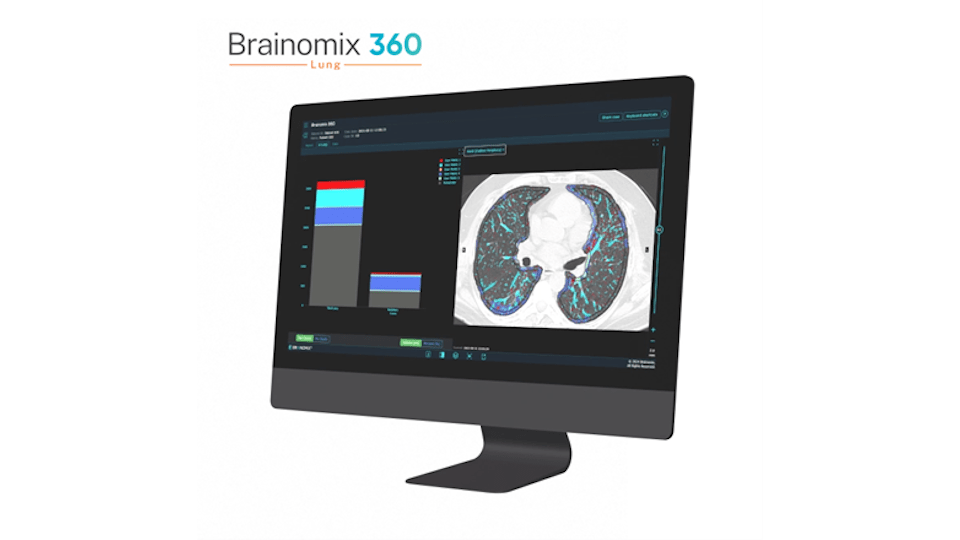Boehringer backs Brainomix AI software for lung fibrosis

Boehringer Ingelheim has joined forces with digital health firm Brainomix on a project to improve the care of people with fibrosing lung diseases in the US.
The new project will focus on the real-world use of Brainomix's artificial intelligence-powered Brainomix 360 e-Lung software, which was recently approved by the FDA in May to assist in the diagnosis and assessment of patients with interstitial lung diseases (ILDs) from medical images.
ILDs represent a broad category of over 200 lung diseases that can cause scarring to the lungs, including pulmonary fibrosis, which is the main focus of the Boehringer partnership and a highly debilitating, life-limiting condition.
The two companies will collaborate on the use of e-Lung to accelerate the diagnosis and improve access to treatment for people living with pulmonary fibrosis from CT scans. The software will be deployed at top US pulmonology centres as well as referring sites, in order to validate its benefits and see how it can be used to "optimise pathways of care and improve outcomes" for patients.
If left untreated, patients with pulmonary fibrosis can have a lifespan as short as five years from diagnosis. It can be hard to distinguish the disease from other respiratory conditions, however, and patients can wait up to two years for diagnosis.
The key to the best survival for patients with fibrosing lung disease is the earliest initiation of treatment, but identifying patients eligible for treatment based on imaging can be challenging, even for experts, according to Brainomix and Boehringer.
"There is an urgent need to improve the identification of people with fibrosing lung disease," said Dr Michalis Papadakis, who is chief executive and co-founder of Brainomix, a spinout from the University of Oxford in the UK. "This will enable earlier access to specialist care and the opportunity for faster initiation of treatment, which can slow the worsening of the disease."
e-Lung has been trained using thousands of CT scans to quantify pulmonary fibrosis using proprietary imaging biomarkers and can be used to track disease progress over time, as well as identify patients at risk of progression. It was used in a phase 2 trial of AstraZeneca's anti-IL13 antibody tralokinumab that involved patients with idiopathic pulmonary fibrosis or IPF.
Boehringer sells a widely used treatment for pulmonary fibrosis – Ofev (nintedanib) – and also has an experimental candidate called nerandolimast in phase 3 testing, with new clinical results expected before the end of the year.
"We know how critical early and confident detection of progression is for people living with fibrosing lung disease," commented Ioannis Sapountzis, head of global therapeutic areas at Boehringer.
"We believe that Brainomix 360 e-Lung has the potential to revolutionise the diagnostic landscape and thereby enable earlier treatment decisions at a pivotal stage of the patient's journey," he added. "This can ultimately improve patient outcomes and quality of life of those affected."













